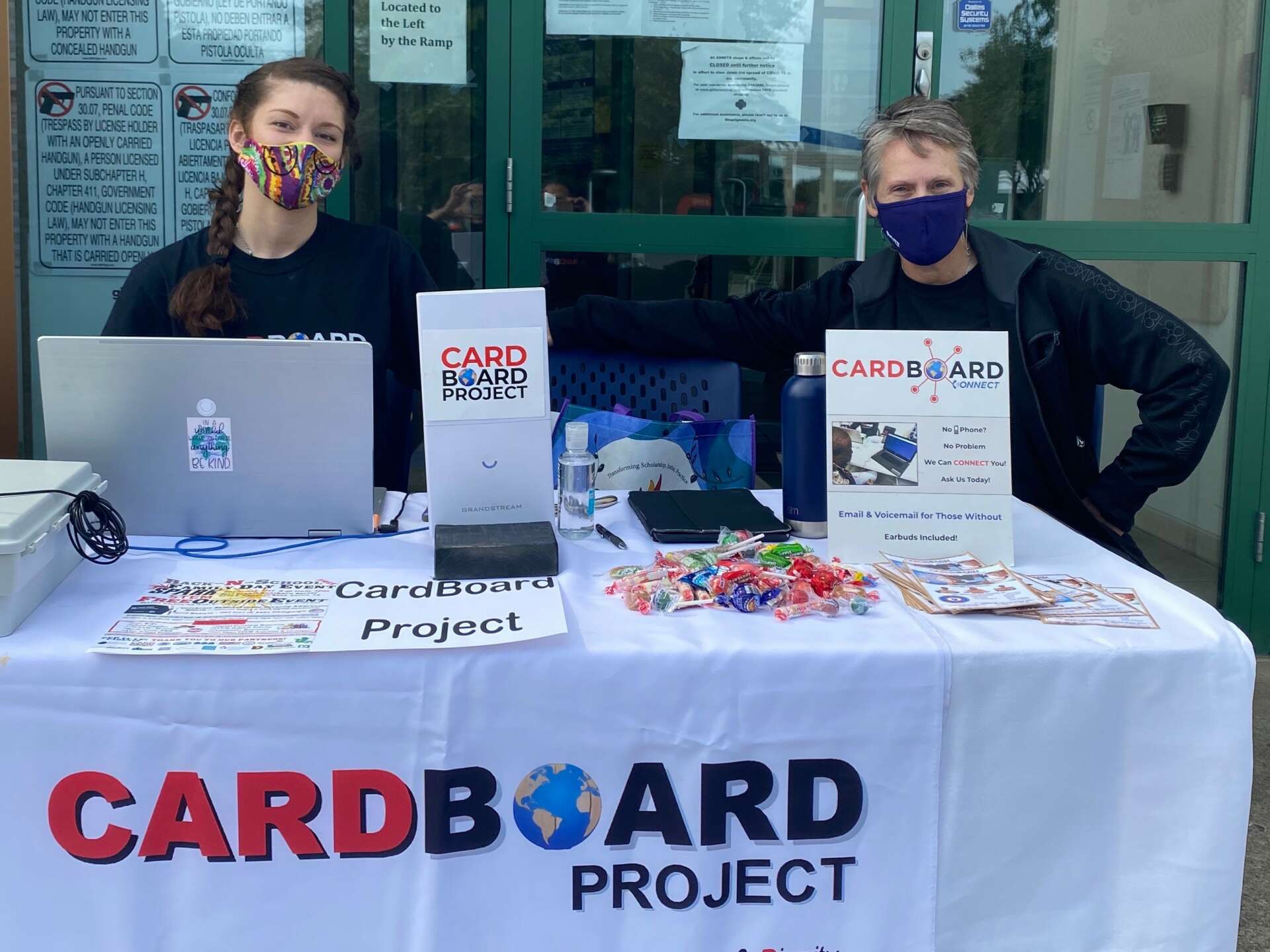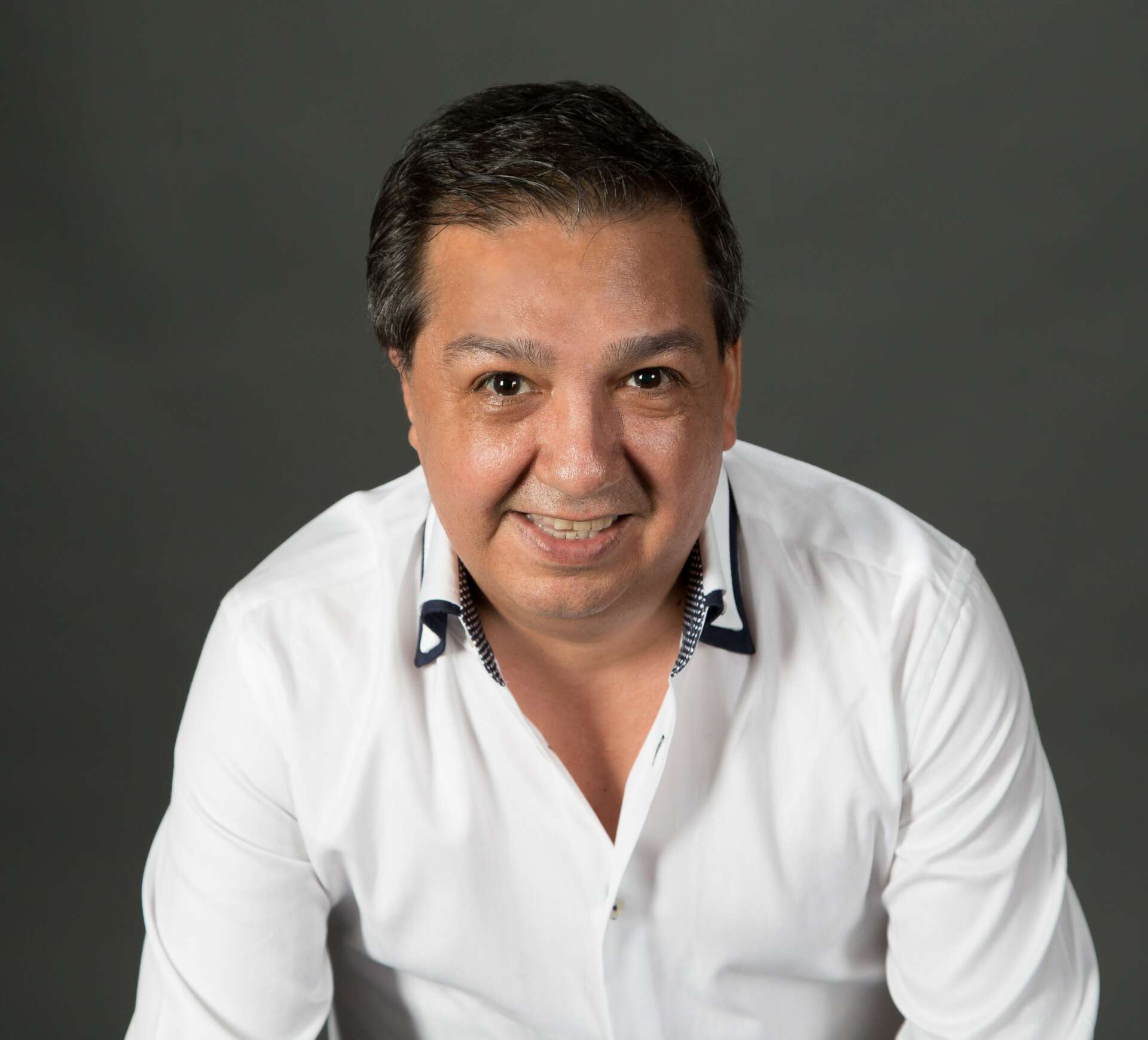We recently connected with Armando Cantu and have shared our conversation below.
Armando, thanks for joining us, excited to have you contributing your stories and insights. We’d love to have you retell us the story behind how you came up with the idea for your business, I think our audience would really enjoy hearing the backstory.
I volunteered and led a team at the Cathedral of Hope’s food pantry for the homeless population for many years before starting CARDBoard Project. During my time there, I engaged in hundreds of discussions with the impacted communities, identified their barriers, and started strategizing on how to address their needs.
I decided it was time to dust off my dream of creating a nonprofit, take it off the shelf, and make it happen. I knew there was a need for digital connection and digital access, and I wanted to support that. I created a pilot program with just 10 donated laptops to help connect affected individuals to digital resources.
CARDBoard Project started as an in-person delivery system in South Dallas. We were first located at Cornerstone Kitchen, where they serve between 350 – 450 hot meals for unhoused and underserved populations. Soon after, I realized that the community in the backyard of Fair Park did not have digital access to apply for seasonal jobs provided by the State Fair of Texas. We brought our laptops and printer onsite, assisting the community by creating professional email accounts. and teaching them how to navigate their job portal. During that first year, we helped 237 people apply to seasonal jobs for the State Fair of Texas.
As we grew, CARDBoard Project expanded to serve at The Stewpot and Martin Luther King Jr. Library. Throughout the three years of in-person service, we served hundreds of individuals, and connected with guests and community leaders to identify the needs of the community and strategize on how to best serve them. Through these conversations, it became apparent that providing access to devices was a step in the direction of digital inclusion, but there was more to be done.
In March 2020, all our locations came to a screeching halt. I lost my staff, volunteers, and donations and was ultimately forced to reflect and reassess how we were going to continue our mission amidst a pandemic. People often ask how I was able to bounce back, and my answer is that I went into my spiritual cave, in solitude, and meditated for weeks. My creative intuition kicked in and as a result, I designed 4 new business models with a focus on intention, replication, and scalability.
During the summer of 2020, CARDBoard Project pivoted to a virtual delivery system. We implemented new business models such as our 10 Step Roadmap to Self-Sufficiency, Virtual Call Center, Digital Device Loan Program, and Digital Skills Training. CARDBoard Project continued connecting with guests virtually and enrolled community partners to support our new business models. These models aim to aide our guests holistically. It is important that we connect our guests with access to basic digital literacy classes, provide community resources that address other needs such as transportation or housing, and equip them with the tools that will lead to sustainable success and self-sufficiency.



Armando, before we move on to more of these sorts of questions, can you take some time to bring our readers up to speed on you and what you do?
Honestly, I have always felt confident with technology. Before CARDBoard Project, I worked as a process engineer. If you asked me then, I would not have guessed those skills would have been utilized in what I do today. It was truly through my experience at the Cornerstone Kitchen when I realized how I could empower underserved populations in South Dallas. In the first year, it started with me and investing three hundred dollars into my nonprofit without laptops. It wasn’t until days away from launching our first location that my close friends and mentor donated enough funds to purchase 5 laptops. In addition to their devotion to help, my friends also volunteered until we could recruit more volunteers. I’m grateful for the people who believed in my dream and supported the cause. The following two years, my organization took off and expanded to three locations within South Dallas. During this time, we tracked demographics and assessments of our guests on paper and created an excel spreadsheet to enter the data collected. This helped me identify the barriers our guests encountered.
Today, our services involve a 10-Step Roadmap to Self Sufficiency that addresses the barriers of those who lack the necessities for a self-sufficient life. The 10-step roadmap involves an assessment of the individual’s barriers. We ensure they have a digital footprint, access to the internet, devices, digital skills. transportation, housing, work readiness, financial literacy, essentials, health and wellness, education, and employment opportunities. Our mission is to create a digital connection for all. We leverage technology so we can serve our guests who live in digital deserts and promote self-sufficiency through accessible technology.
I am most proud to witness our guests who are now a part of the digital world and exploring the digital opportunities that are available to them. I’m also proud of my staff, volunteers, and interns who work with me virtually, across the nation and in two countries. I’m proud of our 4 business models that have allowed us to thrive and are planning on expanding through Texas, then tri-state, and ultimately across the nation.
Let’s talk about resilience next – do you have a story you can share with us?
The first story that comes to mind occurred somewhat in the beginning. In 2019 I discovered that 32% of our guests did not own a cell phone. Since they don’t own a cell phone, they can’t apply for a job. I thought to myself, ‘Okay how can I solve this problem?’ With my creativity and problem-solving skills, I created a solution by providing them with a virtual phone number to allow them to receive an audio voicemail directly into their inbox. That way they could apply for jobs and allow employers to leave them a voicemail. I pitched my idea to several technology companies, and although I was told “NO!” on several occasions, I did not give up because I was determined to find a solution.
One weekend I was invited to a friend’s poolside BBQ. While hanging out with a friend, I sat and conversed with another old friend of mine, and he asked how CARDBoard Project was going. I told him that it was growing and expanding in South Dallas, but I found this problem and have a vision, but I keep getting turned down. When he asked what the problem was, I shared the statistics and my solution. Later, he informed that he works for a tech company and would talk to his COO. A few weeks later he called with great news– he found an answer to my problem! He described how it would all work and assured that it was in alignment with my vision.
Today, my virtual phone number and voicemail idea exists and has made a difference with our underserved communities. Many of our unhoused guests share their number with their families as well. If I had allowed the rejection and negative opinions of others to influence my vision for the voicemail service, CPB would not have connected hundreds of people to employment as well as reconnecting with their loved ones. I had to muster an abundance of resilience in order to manifest my vision. Without resiliency at times of misguided reinforcement from outsiders, many of my visions and innovative solutions for CBP would not have developed to the fruition we see today.


Can you tell us about a time you’ve had to pivot?
Dallas faces a severe digital divide. The city ranks #6 in the country and #1 in Texas of urban cities with families without fixed internet access. Furthermore, 29 % of low-income households do not own a smartphone and 46 % do not own a computer. At least 17% of Black workers and 32% of all Latino workers have no digital skills. Digital exclusion isolates vulnerable populations from access to opportunities, social services and local resources.
We kicked off our digital skill training along with several partners by offering 8 weeks of Microsoft training, including financial literacy for our underserved populations in South Dallas. We had over 100 people sign up for our free digital skills training and we realized that a third of those were Latino and LatinX individuals. We spoke with many of them and asked if we offered the training in Spanish. There was a demand to serve our Latino communities, so I went back to our partners and shared our concerns. After suggesting we provide training in Spanish, we added bi-lingual translators and volunteers to support our new Spanish speaking program.
Now we train over 50 Spanish speaking individuals and have impacted their lives. Without adding Spanish speaking trainers, volunteers and creating Spanish speaking cohorts they would not be empowered to embrace and connect with their diverse communities, and initially advance in their careers. A story that truly depicts the positive impact of our program, is of a mother who arrived to the U.S. alone with her children and in great need of work. She originally worked part-time at a hair salon and spent the rest of her time working as a housekeeper at $14/hr. When hearing about our program, she was thrilled to find an opportunity where she could advance her professional skills through our digital skills training. However, when she found that the program was in English, she became discouraged at the thought of retaining new information in a language she wasn’t entirely confident in. Luckily, we offer training in Spanish and our guest was able to continue with CARDBoard Project successfully. She had always heard about Word, PowerPoint, and Excel, but never thought she’d be given the chance to understand how to use them. In just one year, our guest became confident on all three platforms. She is now the maintenance and housekeeping supervisor of a 40-story building. Today, she feels more empowered than ever and holds an immense drive to continue learning.
Contact Info:
- Website: www.cardboardproject.org
- Instagram: @cardboard_proj
- Facebook: www.facebook.com/thecardboardproject.tx/
- Linkedin: www.linkedin.com/company/cardboard-project
- Twitter: @cardboard_proj
- Youtube: www.youtube.com/channel/UCjJrg4jVxeAxcpgd94xvbrQ


